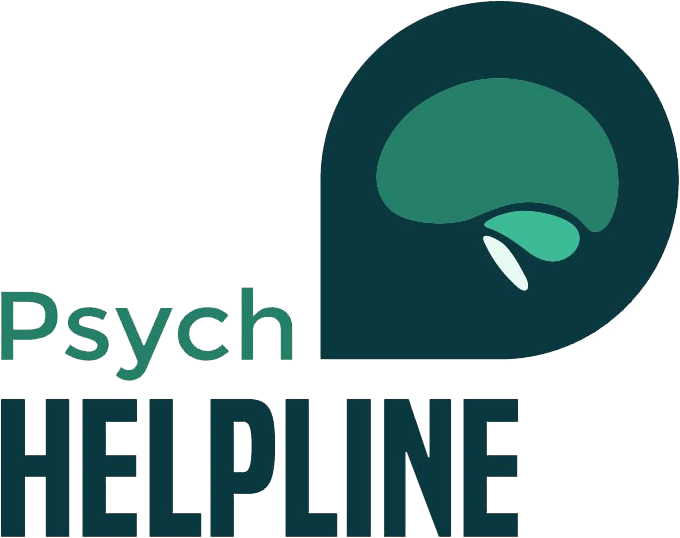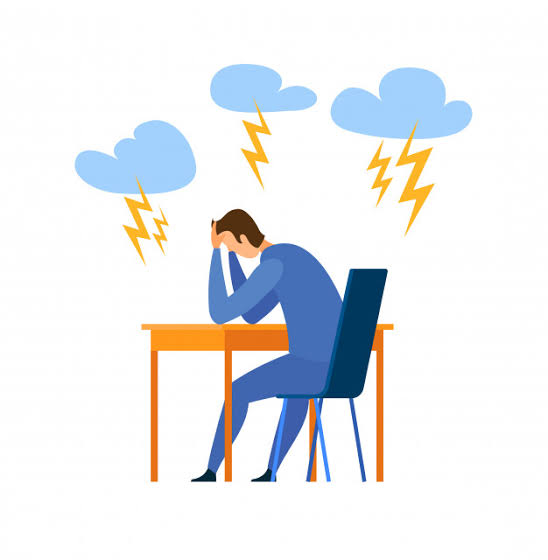Table of Contents
OCD is a common occurrence among both adults, and children all over the world so it’s only fair if you know how to distinguish OCD from Social anxiety disorder and ADHD. All three of these are perhaps some of the most feared behavioral disorders known to mankind.
“Around 2%, 9.4% and 3.6% of the world population have OCD, ADHD, and SAD respectively”
Furthermore, the taboo attitude surrounding such disorders often leads to them ending up in the same box with no reference to their individualities. An ignorant person is always more than willing to put labels on mental disorders according to his own accord because most of these disorders have quite a lot of commonalities. So, if you’re interested in finding out how OCD differs from ADHD and SAD we’re here to help!
Social Anxiety

To be quite straightforward; Social anxiety or social phobia is a disorderly condition categorized by the fear of getting negatively evaluated or judged in any social environment. Look around you, there’s a fair share of people who are absolutely scared of speaking in the public domain. Some of these people are mildly scared due to their lack of confidence. Meanwhile, there are some other much severe cases of this kind, that might or might not be due to social anxiety. Many factors determine the course of social anxiety disorders and it can be triggered by multiple stimuli. Some of these triggers include;
- Bullying
- Dysfunctional parents
- Previous history of humiliation or ridicule
- Trauma
- Abuse
- Family conflicts
- Previous instances of rejection

Social anxiety disorder is amongst the most common disorders in people. This particular disorder propagates differently in each case and it would be unfair to put all sufferers in a single box. Many red flags can indicate the presence of social anxiety in a person. The triggers mentioned above can induce noticeable symptoms like; inability to breathe, rapid heartbeat, dizziness, etc. People struggling with social anxiety usually adopt have the following habits to avoid triggering their anxiety;
- Avoiding social events or interactions
- Skipping classes
- Replacing long chats with small talks
- Avoiding making eye contact
- Refusal to use public restrooms or transportation
- Refusal to eat in front of other people
- Reluctance to pursue romantic advances
- Inability to speak in front of a large audience
- Having a lack of confidence in one’s own self
- Adopting hatred for their own physical attributes
- Refusal to express feelings
This particular discussion leads us on to question what actually causes social anxiety disorder? There are multiple reasons behind this order but genetics has a lot to do with it. If there’s a family member already struggling with anxiety, you’re more prone to becoming a target. Researchers argue that genetics play a huge role in the development of the amygdala (the part of the brain that controls fear response). So, any form of abnormality in this process may induce social anxiety disorder in a person.
OCD & Social Anxiety
People with little to no knowledge of disorders and cognitive ailments tend to put everything in a single box. So, you must distinguish these disorders from each other if you wish to find a cure for them. If you feel like there’s something wrong it’s always better to consult an actual physician/psychologist instead of making your own assumptions. Similarly, OCD and Social anxiety disorder are interconnected but should never be used as umbrella terms for each other.
Multiple pieces of research conducted on OCD indicate that 11% of people diagnosed with OCD also have Social anxiety disorder.

Both of these disorders are brain disorders that inflict behavioral changes. Furthermore, both OCD And Social Anxiety disorder can be controlled through Cognitive Behavioral Therapy (CBT). People struggling with Social anxiety fear that their anxiety causes them to become isolated from other people. This particular fear is also prevalent in OCD sufferers but in a more consuming way. As stated earlier, OCD and Social anxiety have common roots, dealing with one of these disorders can have a slightly positive impact on the other one too. Social anxiety and OCD differ based upon the following strata:
-
The extent of barmy manifestations
Although social anxiety and the triggers involved with that may lead us to think irrationally. For example, struggling with an ailment that might render you physically unattractive can trigger social anxiety. As you’ll fear facing other people because you might assume they’ll judge based on your physical attributes. These kinds of ideas propagate irrational questions in an anxious person’s mind such as:
“Maybe people think I look ugly”
“Maybe my dressing sense isn’t that eligible”
“Maybe my nose looks too big”
So, it’s safe to say that social anxiety tends to make us have irrational thoughts. Meanwhile, the extent of these irrational thoughts is a bit more extreme in the case of OCD. An OCD sufferer has zero control over these thoughts and these thoughts can force them to harm themselves or others too. So, it’s fair to say that both OCD and social anxiety have a common ground in the form of irrationality. Yet, you mustn’t neglect that OCD-induced irrationality can latch on to your deepest fears and is more painful.

- The involvement and absence of ritualistic compulsions
Compulsions or ritualistic obsessions are perhaps the biggest part of an OCD sufferer’s life. These compulsions can be mental or physical. Such as; counting numbers repetitively, washing hands repetitively, repeating phrases, arranging things repeatedly, avoiding touching a particular thing, etc. Meanwhile, social anxiety lacks such ritualistic compulsions. As a person struggling with anxiety you might have a few habits you like repeating to soothe yourself but it shouldn’t be labeled as OCD. That’s because the ritualistic habits practiced by an OCD patient is done to self-soothe and alleviate doubt. An OCD patient is more prone to jumping to conclusions if he/she doesn’t act upon irrational thoughts. For example: checking the stove to the point of exhaustion because you fear a gas explosion.
Attention Deficit Hyperactivity Disorder
Attention deficit hyperactivity disorder (ADHD) is a mental health disorder. This particular mental disorder can be categorized by above-normal levels of hyperactive and uncontrollable impulsive behaviors. Usually, ADHD patients cannot maintain focus on a task. Furthermore, this disorder is usually prevalent in the early stages of development and most people get diagnosed with ADHD in their childhood. Attention Deficit Hyperactivity Disorder has been categorized into the following 3 types;
- ADHD (impulsive/hyperactive type)
- ADHD (inattentive and distractible type)
- ADHD (combined type)
A common symptom among most kids that have ADHD is their inability to sit still for long periods. Kids aren’t the only ones that might face ADHD this order is equally common among adults.
“According to a recent survey, around 8.4% of children and 2.5% of adults have ADHD.”

Due to their tendency to stand out from the rest of the crowd individuals with ADHD often feel lonesome. It’s essential to understand that ADHD patients have no control over their impulses. Contrary opinions often undermine this disorder and that might lead to the sufferers feeling themselves as misunderstood and attacked. One of the many common symptoms of ADHD include;
- Excessive physical movement: Individuals with ADHD cannot sit still and are often in a locomotive state. Even when these individuals have to unwillingly sit still they tend to anxiously shake their legs rhythmically.
- Unstoppable fidgeting: ADHD sufferers cannot withstand calming environments and to ease that discomfort they use other tactics like fidgeting with one’s hands, a pen, or any other object that might be closer.

- Inability to wait: Hyperactive children cannot withstand waiting for their turn to answer a question in class. These kids often do their questionnaires before other kids and have no control over their impulses to stay ahead of others.
- General lack of concentration: ADHD can induce a dream-like state in attention-deficit individuals. So, oftentimes they’ll direct their attention somehow else instead of focusing on the current task.
- Interrupting conversations: Hyperactivity also leads to interrupting dialogues just to get your own point across. Individuals with ADHD are usually better speakers than listeners
ADHD and OCD
Obsessive-Compulsive Disorder and Attention Deficit Hyperactivity Disorder are often labeled as bedfellows. In rare cases, an individual can have both ADHD and OCD at the same time. It’s harder to distinguish between both disorders because of the similarities between their presenting behaviors. Consequently, sometimes it’s even harder to diagnose both diseases as separate conditions.

ADHD Medication And OCD: Medical professionals suggest that individuals with both cognitive ailments should first focus on treating OCD and then on ADHD. The reason behind this is a drug often used to treat ADHD, known as Ritalin. Ritalin is taken to tackle drowsy behavior in ADHD patients so if an individual with a dual ailment takes it, he/she would become more focused on their obsessions. So, taking Ritalin after controlling Obsessive Compulsive Disorder may save you from common flare-ups.
- OCD forces behaviors that “must be taken care of,”. So, even if the result is discomfort or pain an OCD patient is bound to take part in that excruciating cycle of repeating things. On the contrary, an individual with ADHD will abandon the task at hand and dawdle too much. There are some categories of ADHD that turn an individual more absent-minded and a second category turns a sufferer too vigilant. The former category often gets mistaken for OCD.
- ADHD and OCD both occur due to problems in the frontal lobe. The only thing that sets them apart is that ADHD is caused by under-activity in the frontal lobe. Meanwhile, the frontal lobe’s overactivity is often responsible for Obsessive-compulsive disorder.
- A recent study conducted on the causes of OCD suggests that both OCD and ADHD possibly share common genetic predisposition factors. Hence there’s quite a possibility that similar genetic abnormalities may contribute to both ADHD and OCD.
- The impact of untreated ADHD and OCD is pretty similar. Both are prone to unusual amounts of anxiety. Both of these disorders decide our social conduct as adults. Inability to tackle OCD and ADHD often leads to similar problems like;
- Inability to work/Unemployment
- Dysfunctional families
- Divorce/breakups
- Damaged self-esteem
- Substance abuse
- Lack of confidence

- The occurrence of unusual impulses is also common ground between ADHD and OCD. Individuals struggling with both disorders often engage in “counterproductive excessive thinking”. A hyperactive individual will never wait for others, he’s always bound to be earlier than others due to the impulses he’s receiving from his brain. There’s zero control over impulses which is why some ADHD patients often indulge in overeating even when they’re not hungry. OCD is an internalizing disorder. So, like ADHD by giving up to these irrational impulses individuals with OCD cushion themselves against uneasiness and discomfort.
Final Words
Misdiagnosis is probably the worst thing that can happen to a specially-abled person. It’s a common issue among sufferers because they often mistake social anxiety for OCD and the relative treatments make things worse for them. Things like these have happened in the past. This is why creating a clear distinction between cognitive disorders is the first step towards getting better. Seek out the help of a professional who’s obviously more qualified to understand what’s troubling you. It’s also essential that you do your research as thoroughly as you can. OCD and ADHD are tricky disorders that prevail differently in every patient. Hence they require many thoughtful resources and a professional outlook.







